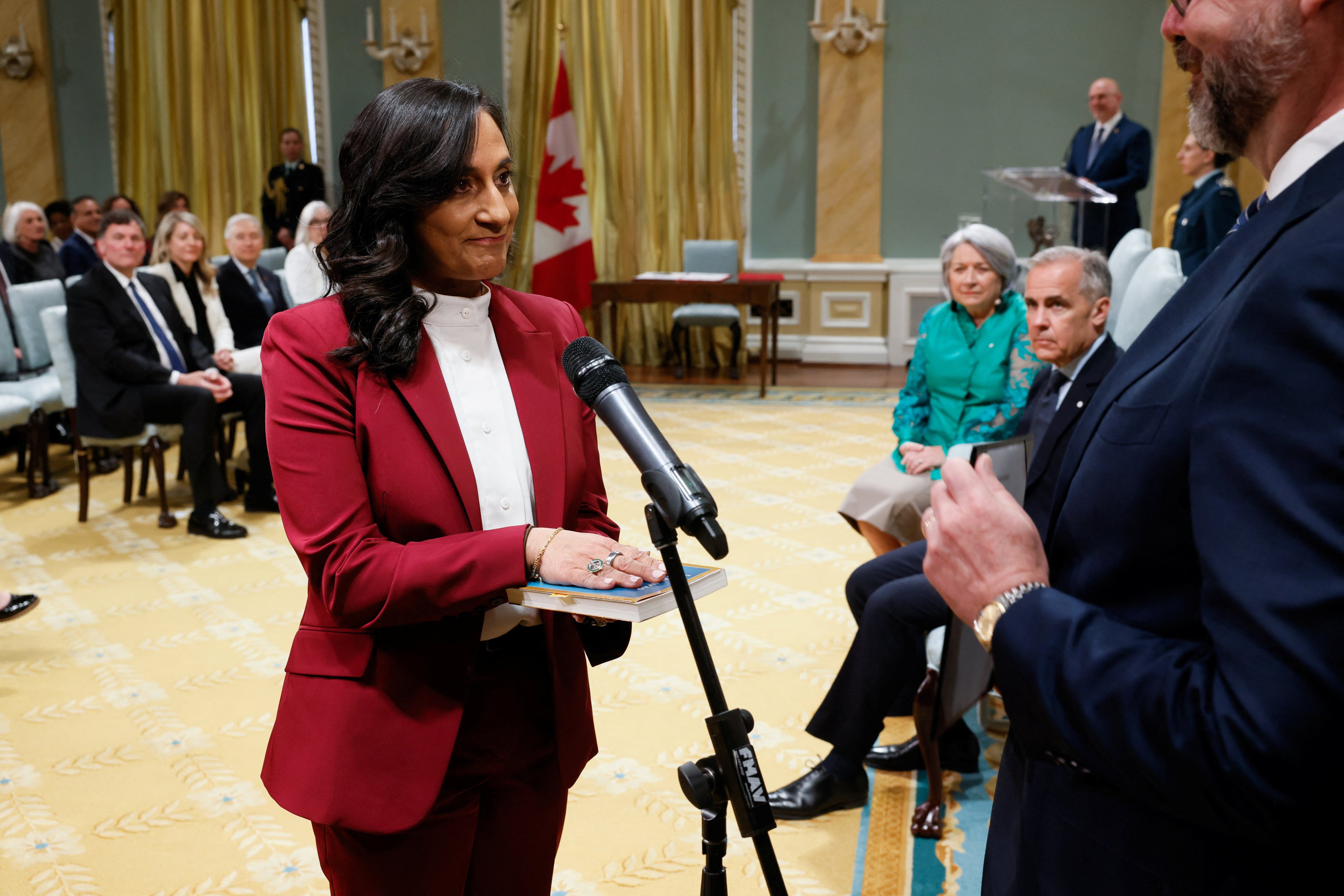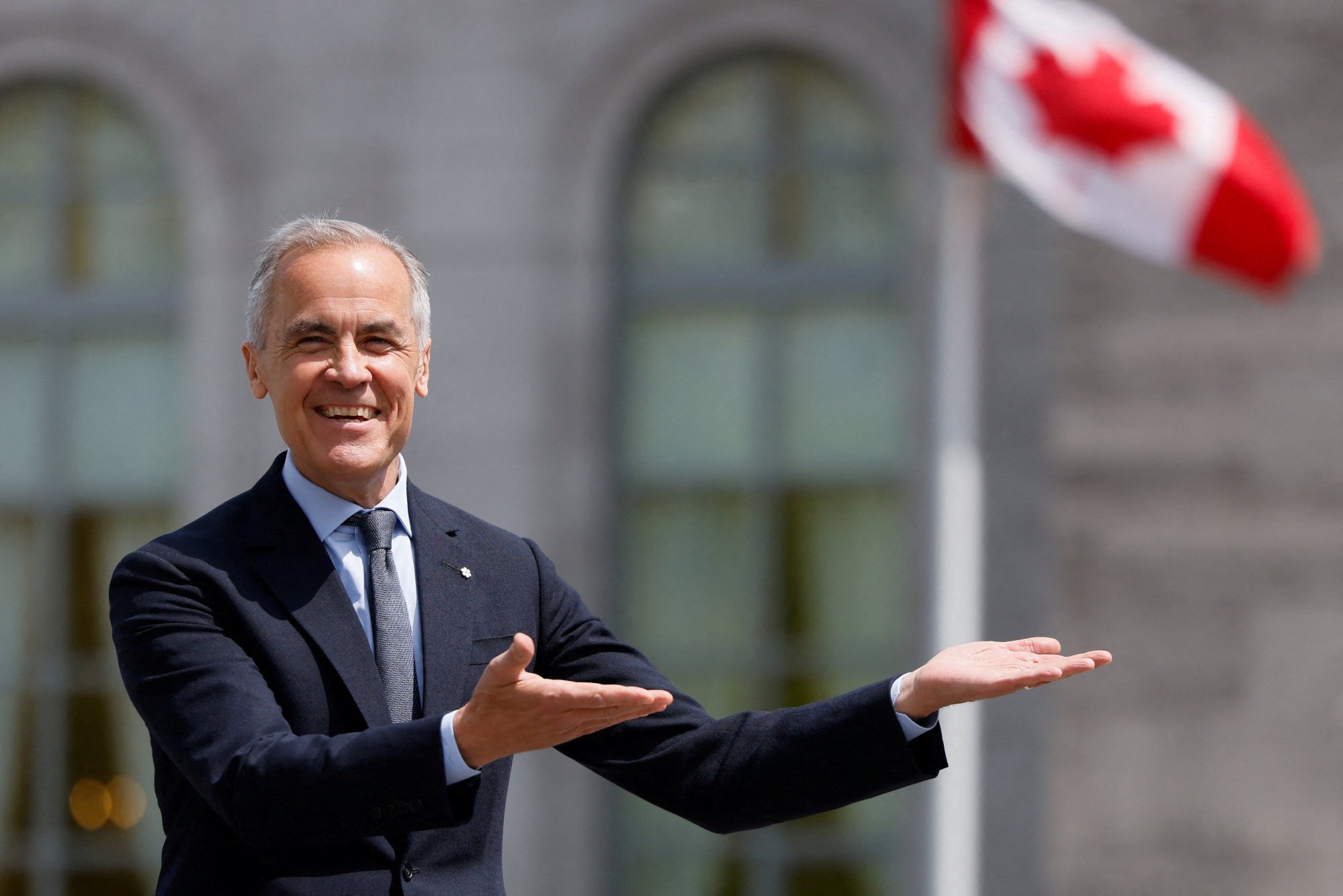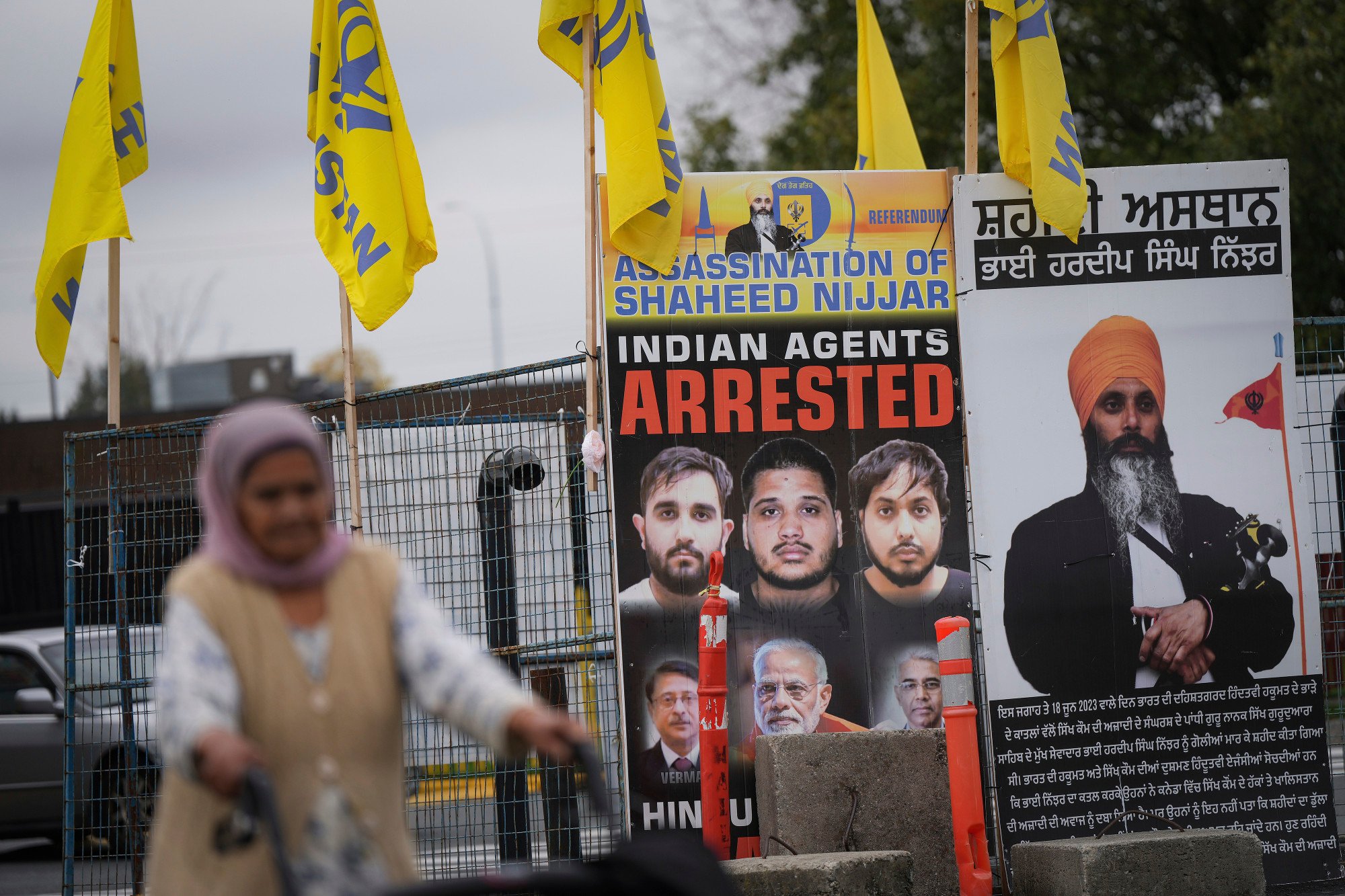New faces in Carney’s cabinet raise hopes of reset in India-Canada ties
Carney’s inclusion of four Indian-origin politicians in key roles a sign he could move forward with promise to relook relations with India, analysts say

Canadian Prime Minister Mark Carney’s appointment of four Indian-origin politicians to key roles in his new government – including Anita Anand as foreign minister – has raised hopes of a reset in strained diplomatic and trade relations with India.
Maninder Sidhu was named minister for international trade, while Ruby Sahota and Randeep Sarai were given roles as secretaries of state for crime prevention and international development, respectively.
The high-profile appointments come as expectations grow that Carney – who previously led the central banks of Canada and the United Kingdom – could bring a more pragmatic approach to foreign policy.
His campaign promise to push back against US President Donald Trump’s economic pressure while restoring Canada’s global credibility struck a chord with voters weary of diplomatic upheaval.
“I think Carney’s decision must be viewed rather positively. Carney has signalled even during his election campaign that he plans to relook at relations with India,” Vivek Mishra, deputy director of strategic studies programme at the Observer Research Foundation, said on Friday.
“My sense is that his government will take that forward.”

Relations between India and Canada plunged to new lows in 2023 after Carney’s predecessor, Justin Trudeau, accused Indian agents of involvement in the killing of Hardeep Singh Nijjar – a Canadian citizen and vocal advocate for Sikh separatism in India’s Punjab region.
The allegation triggered a diplomatic firestorm, with both countries expelling senior envoys and putting long-running trade talks on ice. New Delhi dismissed the charge as “absurd” and negotiations on a comprehensive economic partnership agreement were suspended soon after.
“The advantage for [Carney] is that he is without the baggage of Trudeau, but a disadvantage is that he is part of the Liberal Party, which will have its own pulls,” Mishra said.
Indian Prime Minister Narendra Modi, however, was among the first world leaders to congratulate Carney on his victory. In a post on social media X, he wrote: “India and Canada are bound by shared democratic values, a steadfast commitment to the rule of law, and vibrant people-to-people ties. I look forward to working with you to strengthen our partnership and unlock greater opportunities for our people.”
A recent survey conducted by Nanos Research Group for Bloomberg News showed that Carney would get strong support for his plans to deepen alliances in Europe and Asia and bolster domestic activity to reduce Canada’s reliance on the United States. Three quarters of Canada’s exports head to its southern neighbour.
Trump’s taunts about making the country the 51st US state and imposing trade tariffs have markedly shifted views and behaviours of Canadians, which analysts say could prompt them to seek deeper engagement with India as well as other nations.
Anxiety over Trump’s threats revived support for Carney’s Liberals, who became unpopular under his predecessor Trudeau.
India and Canada had been negotiating a trade deal on and off for more than a decade, but the talks were shelved after Trudeau’s accusations against India about the killing of Nijjar. Canada is home to about 1.7 million people of Indian origin and trade relations with India thrived before the incident.
The country is one of the top destinations for Indian students pursuing higher education.
Carney, who has never held political office before, is expected to prioritise trade relations with other countries because of his background as a banker, analysts say.
“The path towards normalisation is likely to be long. I don’t anticipate a trade deal any time soon along the lines of the US or UK,” said Uday Chandra, an assistant professor at Georgetown University, referring to India’s relations with Canada.
Earlier this month, India signed a free-trade agreement with the United Kingdom and is expected to seal a bilateral trade deal with the US by September.
Though relations with India are likely to improve under Carney, Canada may prioritise a deal with the US because of the country’s strong economic ties as well as focus on introducing tax cuts for Canadians to boost domestic consumption, according to Chandra.
Nevertheless, the appointment of Anand as minister of foreign relations was a significant development for Indo-Canadian relations, he said. Anand, who previously served as the defence minister, replaced Melanie Joly in her new appointment.
Analysts say the three other Indian-origin aides in Carney’s government are also significant because none of them are pro-Khalistan, a movement for a separate homeland for Sikhs in the northern Indian state of Punjab that has been at the root of the diplomatic strain between India and Canada.

The Khalistan movement had rocked India’s Punjab state in the 1980s and early 1990s. Today, the advocates are mostly among Punjabi overseas diaspora, many of whom are settled in Canada. India has often complained to Canada’s government about the activities of Sikh hardliners.
India had launched Operation Bluestar under popular former prime minister Indira Gandhi in 1984 to remove militant religious leader Jarnail Singh Bhindranwale and his followers from the Golden Temple in Punjab, an event that is believed to have motivated Gandhi’s two security guards to assassinate her.
Canada might need to drop charges against India for the killing of Nijjar to reset diplomatic ties, Chandra said.
Carney, however, could choose to distance himself from the issue, as he might not like to be seen as interfering with any official investigation, other analysts noted.
Mishra said the new Canadian prime minister would have to align himself with the broader stance of the Liberal Party on the investigation.